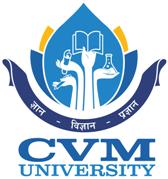Path Traversed
Vallabh Vidyanagar which has a short past but a long history, is a
living memorial of Sardar Patel, the epic person. He dreamt of a
modern and prosperous Independent India in terms of regeneration
of villages through (1) the education, (2) advanced agriculture and
(3) cooperative ventures. We are indeed very fortunate that we
have here all the three : Vallabh Vidyanagar is the realisation of his
first dream; Institute of Agriculture at Anand (now Anand Agricultural
University) is the fruition of the second and Amul Dairy, the cradle of
cooperative dairying, is the fulfilment of the third.
BHAIKAKA & BHIKHABHAI: THE CREATOR DUO
The genesis and phenomenal growth and development of Vallabh
Vidyanagar, the well-planned and unique educational township
situated in the heart of the Gujarat State, is stranger than fiction.
Based on local talent and local resources it is a peerless example
of self-reliance and dedication. While working in Sindh (now in
Pakistan) as Superintending Engineer in Sukkur Barrage, Yevala
in Maharashtra and Ahmedabad Municipality, as a distinguished
Chief Engineer, Shri Bhailalbhai Dyabhai Patel, later warmly taken
to their heart by the people of Gujarat as ‘Bhaikaka’, had earned
reputation for his sense of values, discipline, dedication to duty and
absolute integrity. Having been born and brought up in a family of
strained financial resources in Sojitra village in Kheda district he
had known what it meant to be poor. So, while in dedicating himself
to the cause of rural India which was sunk in inertia, squalor and
abject poverty. Once during a meeting between him and Sardar
Vallabhbhai Patel. who knew Bhaikaka as a man of practical bent
of mind, unusual ability and character, Sardar advised him to go
to the villages and work for their regeneration. Sardar’s wish was
tantamount to a command to him. Bhaikaka’s irresistible desire to
improve the lot of the poor villagers coupled with Sardar’s advice
or command impelled him to take early retirement from the service.
He saw that the most potent instrument to improve the subhuman
life of villagers was to bring higher learning to their very doorstep
and thus the concept of establishing institutions of higher education
started taking shape. He got in touch with Shri Bhikhabhai
Kuberbhai Patel. a dedicated and farsighted educationist, fired by
the same ideal. He had played a pivotal role in the establishment
of Charotar Education Society in Anand and Narmada Kelavani Mandal at Shuklateerth.
Torrential Rain of Land
They held several meetings in different parts of Kheda (then
Kaira) district and a couple of them of about five hundred persons
interested in higher education in Anand town. On March 28,1945
it was decided to draw and implement the plan of planting an
educational township in a wilderness infested with dacoits which
later came to be known as Vallabh Vidyanagar. Bhaikaka and
Bhikhabhai worked out an ingenious scheme based on enlightened
self-interest. They persuaded the farmers to donate their land free
of cost, saying, “Donate your land to us now; we’ll develop and use two-thirds and return you the remaining one-third in course
of time”. It was explained to them that while having the pleasure
of assisting in the establishment of an educational township at
no cost to themselves the building plots they would each obtain
would appreciate sufficiently not only to cover the value of the
land donated, but also leave a handsome margin of profit. It was
a win-win situation and the response to it was overwhelming. At
a meeting in Bakrol, a village at a hailing distance from today’s
Vallabh Vidyanagar, spontaneous offer of land was made to
Bhaikaka and Bhikhabhai.Amap of the village was spread before
the duo and they were asked to mark with a pencil the area needed.
Residents of Anand and Karamsad (Sardar Patel’s village) followed
suit. Thus a total of 555 acres of land at the intersection of Bakrol,
Karamsad and Anand was received in donation. It was a torrential
rain of land!
Exemplary Self-reliance
The founders decided to establish two institutions - Charutar Vidya
Mandal and Charotar Gramoddhar Sahakari Mandal. The former was
to be devoted to the cause of education, that is, establishing colleges
and schools and the latter meant to produce the building materials
for educational institutions and residential quarters. They were
registered on August 10, 1945 and September 7, 1945, respectively.
Bhaikaka and Bhikhabhai came to reside in the wilderness in an
improvised residence - a hut measuring 8 ft and 1 0 ft on March 3, 1
946. They chose a mango tree and installed themselves under it, in
the divine presence of Lord Brahma, the Super Creator, dreaming,
planning, breaking a new ground, organizing, getting things
done and resolving snarls to plant a city of education farfrom the
maddening hustle and bustle of cities. It merits a special mention
here that Bhaikaka, the Patriarch of Mango Tree, as he was then
called, despised the idea of copying or borrowing know-how and
do-how from anywhere. His indomitable faith in the local human
material, though inexperienced, propelled him to bake bricks for the
buildings locally. He established building material units -workshop
and foundry, cement pipe factory, tiles factory, rubber factory and
prestressed concrete factory to produce, in addition to bricks, lime,
timber doors and windows, flooring tiles, hume pipes and various
concrete products. The materials thus produced worked out
cheaper than in the market and in addition, provided employment
to the local people. It is difficult to resist the temptation of recalling
here that Bhaikaka invited a Harijan to inaugurate the brick-kiln, a
Muslim mechanic to lay the foundation of the workshop and foundry
and a Brahmin to lay the first brick of the V. P. Science College !
A printing press named as Gramoddhar Printing Press for printing
handbills, booklets, books, research journals and questionpapers
was also set up.
Bhaikaka, Ihe man with green thumb, planted a thousand trees. It
is to him that we owe the lush-green, stately, shady trees all along
the roads in VallabhVidyanagar.

